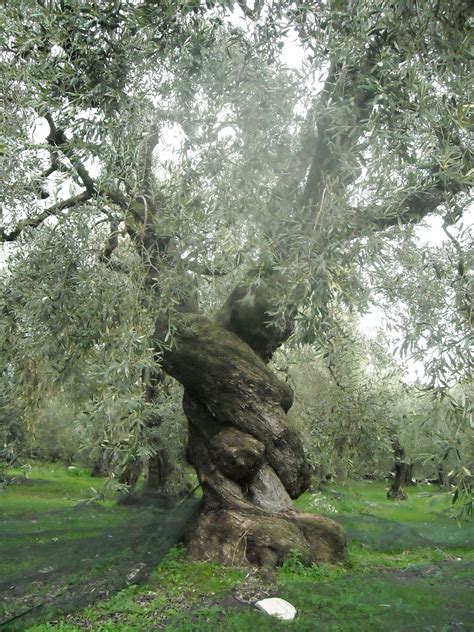Greece is a land steeped in history and mythology, and there is no better way to immerse yourself in its ancient roots than by embarking on a journey through its legendary olive groves. In this blog post, we will delve into the captivating world of Greece’s ancient olive groves, unraveling the tales of their mythical origins and exploring the intricate techniques of olive cultivation that have been passed down through generations. We will also uncover the labor-intensive process of hand-harvesting olives and learn about the traditional methods of olive oil production in ancient Greece. Join us as we savor the golden elixir of the gods, tasting the rich and flavorful ancient Greek olive oil that has stood the test of time. Get ready to discover the magic and traditions that have made Greek olive groves a timeless symbol of culture and heritage.
Exploring the Mythical Origins of Olive Groves
According to ancient Greek mythology, the olive tree has a divine origin. The story goes that the goddess Athena and the sea god Poseidon were in a dispute over the patronage of the city of Athens. In order to win the favor of the people, the two gods each presented a gift to the city. Poseidon struck the ground with his trident and created a spring of salt water, but Athena offered the olive tree, which was deemed more valuable by the citizens.
The olive tree was believed to have been created by Athena, and it quickly became a symbol of peace, wisdom, and prosperity. Its mythical origins are deeply rooted in Greek culture, and it plays a significant role in ancient rituals and traditions.
These mythical origins of olive groves have been passed down through generations, and the significance of the olive tree in Greek culture continues to be celebrated today. The olive branch still symbolizes peace and is often used in ceremonies and events as a sign of hope and harmony.
As we explore the mythical origins of olive groves, we can appreciate the deep cultural significance of the olive tree in ancient Greek society. Its divine origins have contributed to the reverence and respect that the olive tree continues to receive to this day.
Uncovering the Ancient Techniques of Olive Cultivation
When it comes to understanding the history of olive cultivation, it’s essential to delve into the ancient techniques that have been used for centuries. The process of cultivating olives dates back to the Mediterranean region, where early civilizations developed innovative methods to grow and harvest this valuable crop.
One of the most fascinating aspects of ancient olive cultivation is the use of terracing, a method that allowed farmers to plant olive trees on steep sloping hillsides. This technique involved constructing stone walls to create flat levels of land, providing the necessary conditions for olive trees to thrive and produce high-quality fruit.
Another important ancient technique is the use of organic fertilizers and natural irrigation methods, which have been passed down through generations. By using compost, animal manure, and innovative irrigation systems, ancient olive growers were able to maintain the health of their olive trees without the use of modern chemicals.
Furthermore, the ancient Greeks and Romans were known for their meticulous pruning and training of olive trees, shaping them into low, spreading forms that maximized sun exposure and facilitated efficient harvesting. These traditional techniques continue to be a vital part of olive cultivation, preserving the environmental and cultural heritage of ancient times.
The Intricate Process of Hand-Harvesting Olives
Hand-harvesting olives is a traditional method that has been used for centuries to ensure the highest quality of olive oil. This intricate process involves carefully picking the olives by hand, usually using small rakes or handheld tools to gently comb the branches. The attention to detail and care taken during hand-harvesting ensures that the olives are not damaged, preserving their flavor and nutrients.
During the hand-harvesting process, skilled workers meticulously inspect each olive, selecting only the ripest fruits for harvesting. This labor-intensive method allows for a level of precision that is unmatched by mechanical harvesting, resulting in a superior quality of olive oil.
Hand-harvesting olives also has a smaller environmental impact compared to modern mechanical methods. By avoiding the use of heavy machinery, hand-harvesting helps to preserve the natural landscape and biodiversity of olive groves. Additionally, this method supports local communities by providing employment opportunities and preserving traditional farming practices.
The art of hand-harvesting olives is deeply rooted in the cultural heritage of olive-growing regions, reflecting the ancient traditions and values associated with the cultivation of this precious fruit. This time-honored practice pays homage to the connection between humans and nature, celebrating the rich history of olive oil production.
Preserving Traditions: Olive Oil Production in Ancient Greece
Ancient Greece is renowned for its rich history, vibrant culture, and of course, its prized olive oil. Olive oil holds a special place in the heart of Greek traditions, where the production of this golden elixir has been preserved for centuries.
The process of olive oil production in Ancient Greece was a meticulous and labor-intensive one, with ancient Greeks employing traditional methods to extract every last drop of this liquid gold from olives. From hand-picking the olives to stone grinding and pressing them, the production of olive oil was steeped in tradition and reverence for the land.
The methods and techniques used in ancient olive oil production have been passed down through generations, preserving the unique flavors and qualities of the oil. Today, modern olive oil production still embraces these age-old traditions, ensuring that the essence of Ancient Greek olive oil lives on.
Exploring the olive oil production process in Ancient Greece offers a glimpse into a time-honored tradition that continues to thrive in the modern world. The preservation of these traditions not only honors the history and culture of Ancient Greece but also allows us to savor the unparalleled taste of this timeless elixir.
Tasting the Golden Elixir: Ancient Greek Olive Oil Experience
As we immerse ourselves in the rich history of Ancient Greece, one cannot help but marvel at the timeless tradition of olive oil production. The golden elixir, as it is often referred to, holds a special place in the hearts and palates of the ancient Greeks. Tasting this liquid gold is not just a culinary experience, but a journey back in time to the origins of olive cultivation.
The process of obtaining olive oil in Ancient Greece was a laborious yet intricate process that involved meticulous care and dedication. The hand-harvesting of olives was a revered practice, with the olive groves serving as a sacred space for this ancient tradition. The uncovering of these ancient techniques sheds light on the profound respect and reverence that the ancient Greeks had for this precious commodity.
Preserving these age-old traditions is essential in understanding the significance of olive oil production in Ancient Greece. The mythical origins of olive groves are intertwined with the very fabric of Greek mythology, with legendary tales of Athena gifting the olive tree to the city of Athens. Such stories enrich the overall experience of tasting this liquid gold, as one can truly appreciate the cultural and historical significance behind this golden elixir.
Ultimately, the ancient Greek olive oil experience transcends the boundaries of time and space, offering a glimpse into a world where tradition and history are entwined with the very essence of human existence. To taste the golden elixir is to partake in a ritual that has been passed down through generations, a ritual that holds the spirit of Ancient Greece within each golden drop.
Frequently Asked Questions
What is the mythical origin of olive groves in Greece?
The mythical origin of olive groves in Greece is said to be attributed to the goddess Athena, who planted the first olive tree on the Acropolis.
What are some ancient techniques of olive cultivation in Greece?
Ancient techniques of olive cultivation in Greece include terracing the land for optimal irrigation, using stone presses for olive oil extraction, and employing traditional pruning methods.
How are olives hand-harvested in ancient Greece?
In ancient Greece, olives were hand-harvested by carefully plucking the ripe fruits from the branches and collecting them in woven baskets to avoid damaging the delicate skin of the olives.
How was olive oil produced in ancient Greece?
In ancient Greece, olive oil was produced through a meticulous process that involved crushing the olives with stone presses, collecting the olive paste, and then separating the oil from the paste using pressing techniques.
What are some traditional methods of preserving olive oil production in ancient Greece?
Traditional methods of preserving olive oil production in ancient Greece included storing the oil in clay vessels, adding herbs for flavor, and sealing the vessels with a layer of olive oil to prevent oxidation.
What was the significance of olive oil in ancient Greek culture?
Olive oil held great significance in ancient Greek culture, as it was not only used for cooking and lighting, but also for religious rituals, medicine, and as a symbol of wealth and power.
Can visitors experience the ancient Greek olive oil production process today?
Yes, visitors can enjoy an ancient Greek olive oil experience at various olive groves and farms in Greece, where they can participate in harvest activities, learn about the historical techniques, and taste the golden elixir of ancient Greek olive oil.






